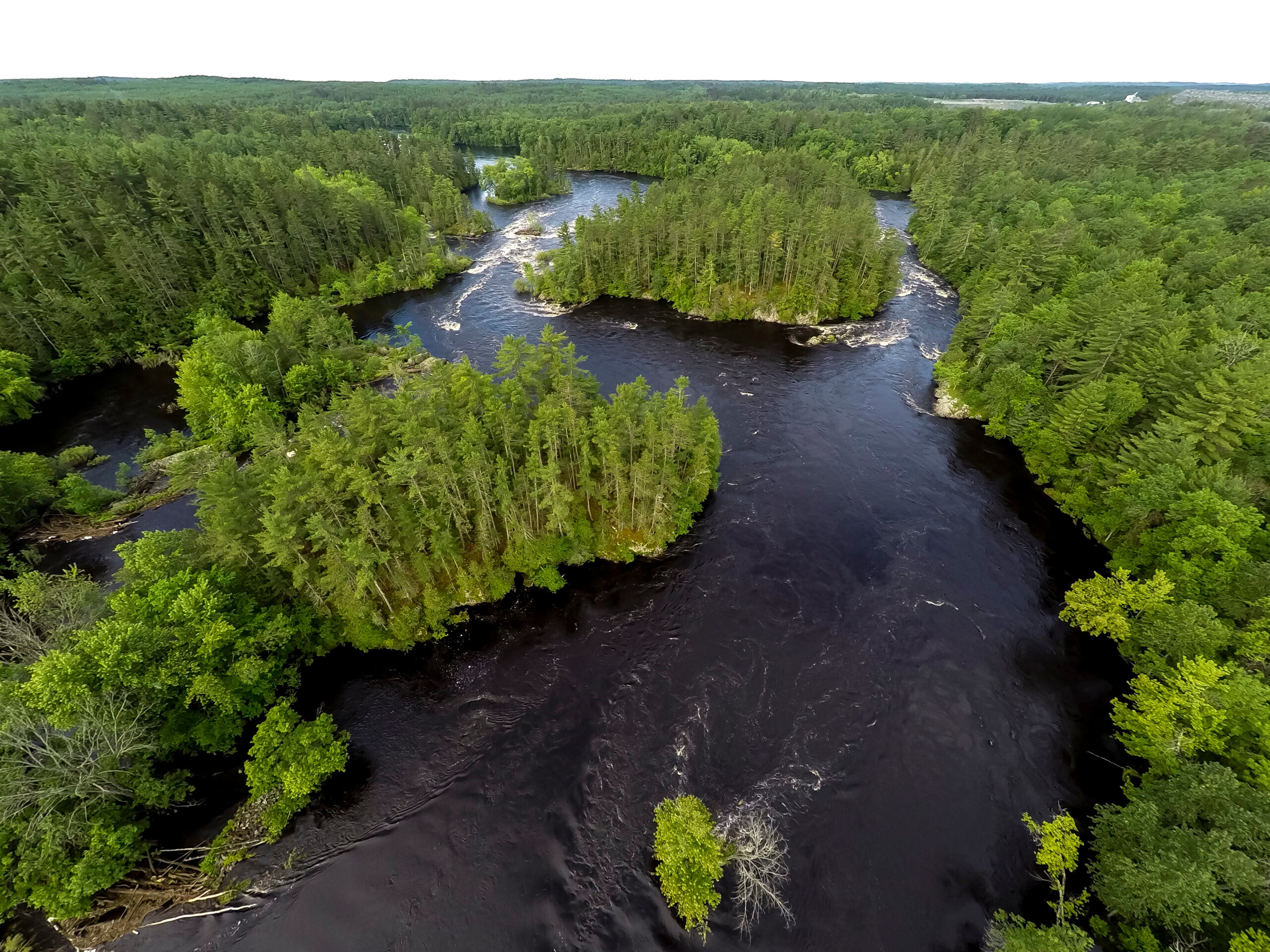Wisconsin Tribe Going to Court to Keep a Massive Open Pit Mine Out of Ancestral Lands
With the help of Earthjustice, the Menominee Indian Tribe of Wisconsin is fighting the development of an 80-acre mine just 50 yards from the Menominee River.

This page was published 8 years ago. Find the latest on Earthjustice’s work.
Imagine the reaction if developers proposed digging a massive open pit mine on the banks of the Potomac River at Arlington National Cemetery.
The outrage of a corporation planning to mine on a hallowed burial site isn’t imaginary at all for my people, the Menominee Indian Tribe of Wisconsin. With the help of Earthjustice, we’re fighting the development of an open-pit metallic sulfide mine and processing facility just 50 yards from the Menominee River, on the Wisconsin-Michigan border.
The mine would cover more than 80 acres and stretch 750 feet deep, reaching far below the natural water level. Its proximity to the river, along with the slag piles and hazardous waste holding ponds, are unacceptable risks to public health, water quality, wetlands, fish and wildlife, and the environment.
Today we asked a federal court to force the U.S. Army Corps of Engineers and the U.S. Environmental Protection Agency to take responsibility for a wetland permit that is key to the future of the controversial Back Forty Mine proposal. The agencies have been allowing the state of Michigan to oversee the permitting process.
As chairman of the Tribal Legislature, I see this as a battle for the future of a healthy environment in the region. It is also a battle about showing proper respect for the Menominee Tribe’s traditional cultural landscape that contains ancient garden beds, burial mounds and sacred sites.
The Back Forty Mine developer—Aquila Resources, Inc.—describes the project as an “open-pit volcanogenic massive sulfide deposit,” and is tempting potential buyers with the promise of zinc and gold, among other metals. In November, Aquila completed a $65 million financing agreement with Osisko Bermuda, Ltd. based on the mine’s potential output.
It’s the latest proof that Aquila and its investors have chosen to brush off the objections of seven local counties, two towns, two cities, dozens of tribal governments and intertribal organizations, and many other organizations, all of which have passed resolutions opposing the mine.
Gary Besaw, Menominee Nation from River Alliance of Wisconsin on Vimeo.
When a basic online search reveals this overwhelming local opposition, investors can no longer cite ignorance as an excuse. Developers, investors and financial institutions that back these controversial projects cannot simply state their commitments to corporate social responsibility on paper—they must implement them through action.
The Menominee River is a major Lake Michigan tributary, and part of the largest watershed in Michigan’s Upper Peninsula. The river attracts people for its rafting and fishing. The Menominee River State Recreation Area encompasses an undeveloped, 17-mile stretch of the river prized for its hiking trails and whitewater access.
Across this country, similar battles are being fought.
Whether it’s the Standing Rock Sioux’s heroic opposition to the Dakota Access Pipeline, people on the five reservations in Minnesota’s 8th District voicing concerns about a proposed open-pit copper/nickel mine there, or Pacific Northwest Tribes joining forces to help stop the nation’s largest oil-by-rail terminal from being built in Washington state, we gain courage from their struggles.
It is critical for people to stand up to the tyranny of those who see our natural resources as precious only for the dollars that can be made from tearing into them.
Audio from the Menominee’s “Remembering our Ancestors” event on Sept. 22, 2016, which aimed to draw attention to the planned mine on the banks of the sacred Menominee River.
Established in 1987, Earthjustice's Northwest Regional Office has been at the forefront of many of the most significant legal decisions safeguarding the Pacific Northwest’s imperiled species, ancient forests, and waterways.
We fight to ensure our tribal and Indigenous clients’ natural and cultural resources are protected for future generations.